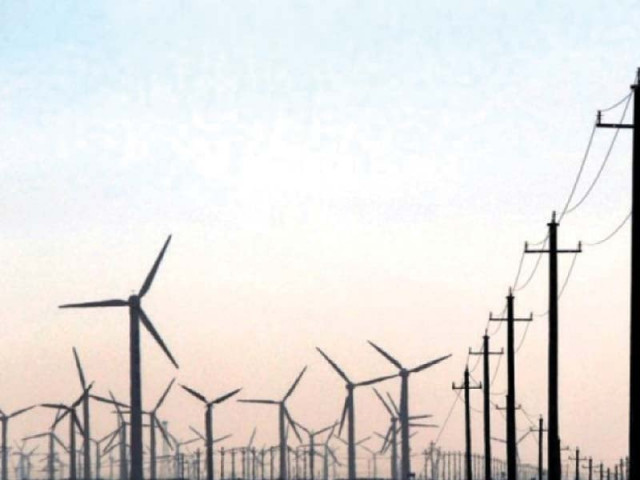Power generation: Sufficient power at low cost likely in new policy
Government to focus on facilitating foreign investment, offer tax rebate.

The policy will also highlight the importance of exploiting indigenous resources to overcome the energy crisis. STOCK IMAGE
The federal government is likely to announce the new power generation policy 2015 with objectives to provide sufficient power at minimum cost. The policy will also highlight the importance of exploiting indigenous resources to overcome the energy crisis.
“In the final stage of policy formation, input from all stakeholders [provinces] was invited and would be sent to the Council of Common Interest (CCI) for approval,” said an official of the water and power ministry.
The PML-N, during its election campaign, announced to overcome the present electricity crisis within the shortest period of time and this policy will be focused on materialising that claim.
The new policy would be the improved version of the existing Power Generation Policy 2002 to facilitate interested firms — foreign and local – to set up power generation projects while promoting healthy and secure competition of investment in Pakistan, said the official.
Only solicited projects – via International Competitive Bidding (ICB) – based on lowest evaluated levelled tariff or solicitation of discount on the upfront or benchmark tariff determined by the National Electric Power Regulatory Authority (Nepra) would be considered for approval. Proposals submitted by the sponsors in response to invitations of the Expression of Interests (EoI) where Nepra has announced upfront tariff would be processed for approval.
Alternatively, projects approved by provinces, Azad Jammu and Kashmir, Gilgit-Baltistan, lower heating value gas field projects and Public-Private Partnerships will be processed for approval under the new policy, the official added.
Government of Pakistan-initiated bilateral agreement projects consisting of tied financing, use of any indigenous fuel resource and where the Nepra has determined the tariff will also be considered for approval, said the official. Expansion of existing Independent Power Plants subject to consent of power purchaser and tariff approved by Nepra will also be processed under the new policy.
The government would also announce tax rebates and concessions for investors in the new policy. It would announce exemption from corporate income tax, turnover tax, withholding tax and sales tax for the investors to provide an investment-friendly environment in Pakistan.
The government would also limit decreasing concessionary import duty on imported plants and equipment by up to 5% in the policy. They have guaranteed adhering to obligations of power purchasers and provinces, including providing protection against political forces, changes in law, duties and taxes.
Power purchasers will have to bear the hydrological (floods) risk for hydro projects as well. Meanwhile, attractive returns will be provided to equity investments by the regulator for imported coal (27.3%), local coal (29.5%), Thar coal (34.5%), hydro (23%) and gas/LNG (18%)
Nepra would provide tariff reopeners like cost escalation in civil and cost variation from resettlements. Meanwhile, it will also prove reopeners for cost variation due to conditions limited to tunnelled areas, in order to mitigate underground geological risks, long construction periods and environmental sensitivities.
The official further added that Pakistan would ensure the conversion of Pakistan Rupee and foreign exchange remittances for project-related payments under the new policy.
Published in The Express Tribune, April 5th, 2015.
Like Business on Facebook, follow @TribuneBiz on Twitter to stay informed and join in the conversation.



















COMMENTS
Comments are moderated and generally will be posted if they are on-topic and not abusive.
For more information, please see our Comments FAQ